#Nemesis Divina
Text
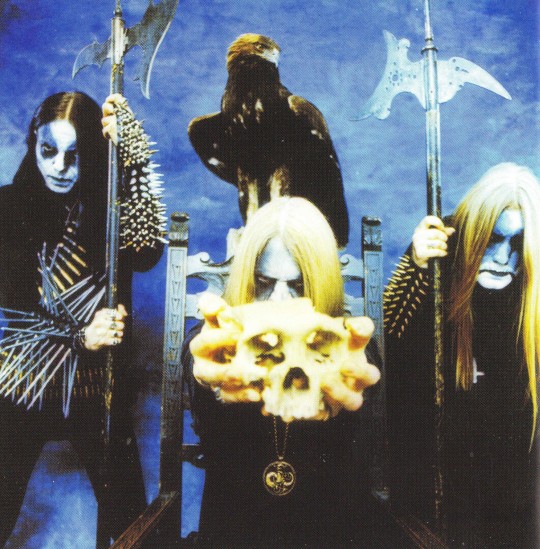

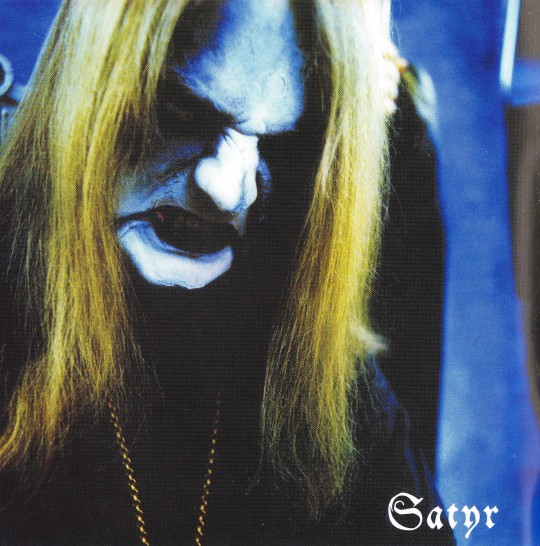
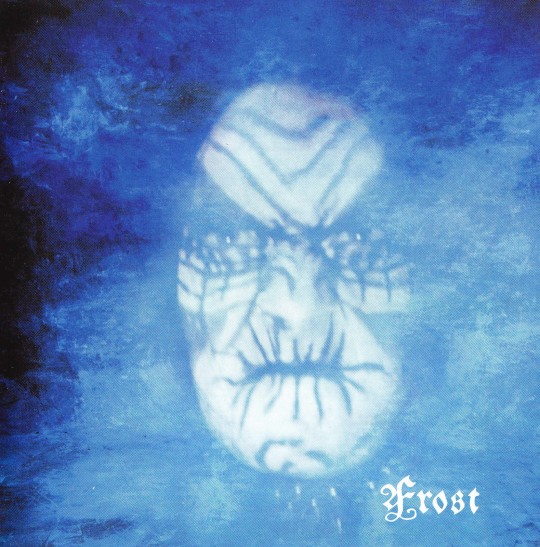
21 notes
·
View notes
Photo
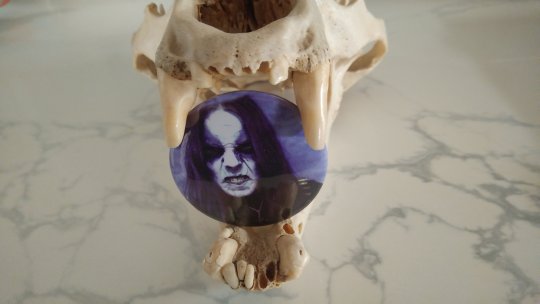
Frost really did >:c and we all ate it up. Go take this angery drummer home
( Strixes’ Sabre )
#black metal#1349#frost#Kjetil-Vidar Haraldstad#satyricon#kutte#battle jacket#button#pin#badge#true norwegian black metal#The Shadowthrone#dark medieval times#Now Diabolical#kvlt#corpse paint#nemesis divina
6 notes
·
View notes
Text
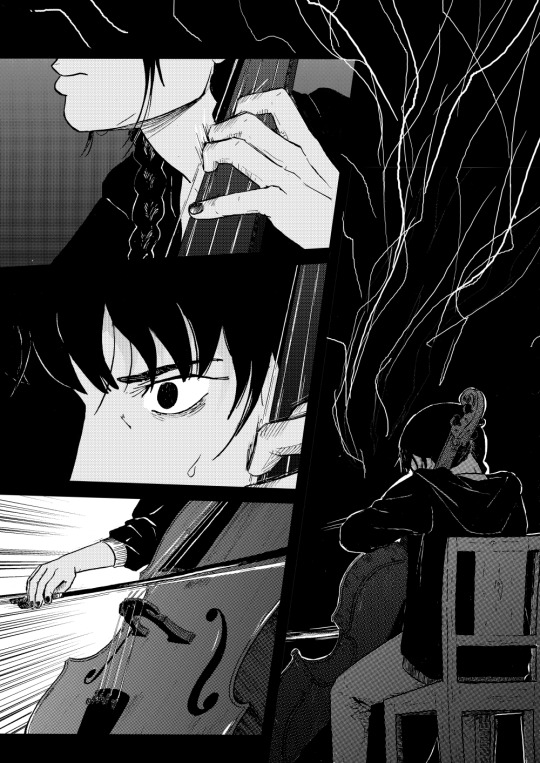
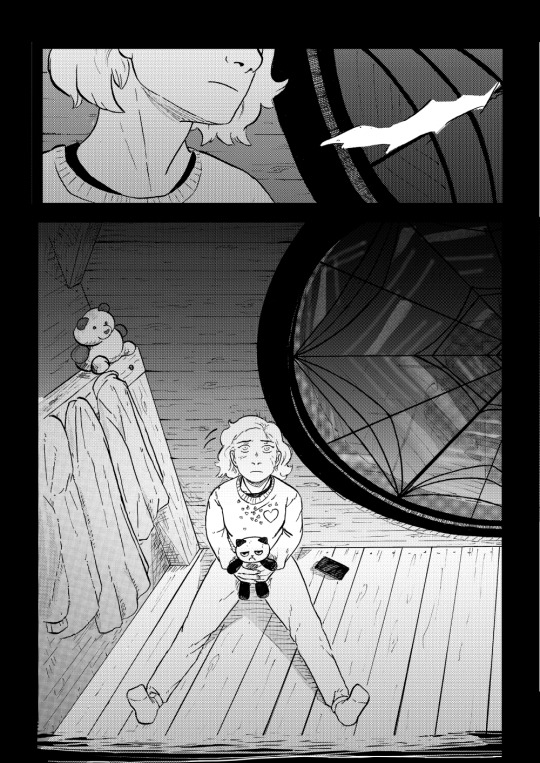

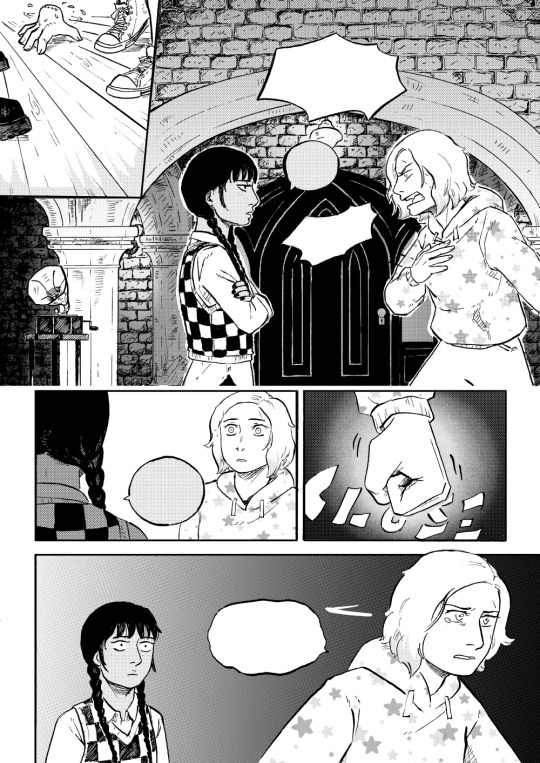
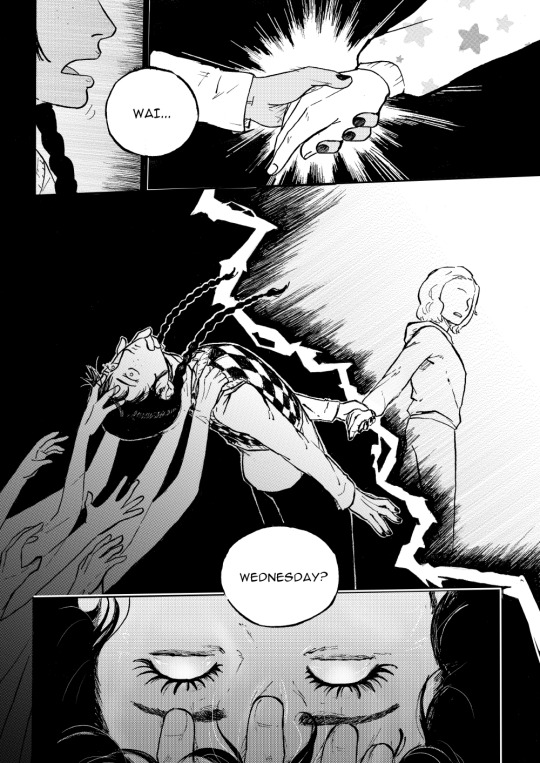

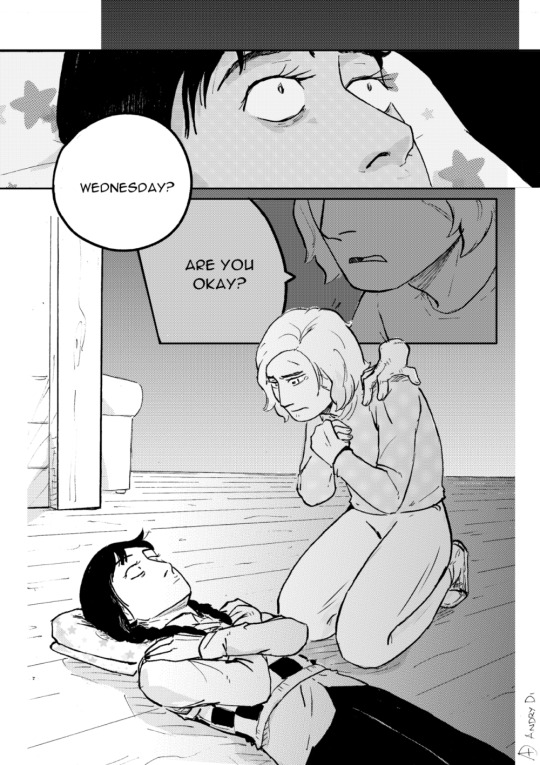

#wednesday#wednesday addams#enid sinclair#thing#yoko tanaka#divina#comics#ad23#wenclair#friendship restored with cars#now music is my new nemesis
3K notes
·
View notes
Note
1. gun to your head, you gotta save one of them and the other's going to die : levi or hange? 😈
2. who's your fave metal band/artist of all times, and which type of metal do you enjoy most?
3. how do you handle hange's fate most days and does it vary? are you more Team Denial or have you accepted it because you think it's a fitting ending for their character, or anything in between?
yeah i'm curious and i can't sleep either hehehe
Krikkit 🙂
Thanks for asking ! Sorry to reply so late, but I finally fell asleep earlier than expected 😴
*****
1/ I should have known you would ask a tricky question like this, you evil moot lmao !!
[speaking of canon characters here] According to my preferences -even if I almost love both of them equally by now- you could fairly expect me to choose Levi, but I would save Hange ! [Disclaimer : me not saying Levi's life is not valuable, don't misinterpret my words, people, please & thank you]
Besides Hange's fighting skills, their brains still have so much to offer to Humanity after war, in terms of progress, knowledge, improvement, technology, based on their scientific experimentation & enthusiastic curiosity. Their kindness & heartwarming sunshine personality would spread positivity & comfort around them as well, helping those close to them cope with their griefs & heal their emotional wounds. [But this would be so cruel, as I imagine they would mourn Levi for years & -secretly- hate me so much for choosing them over him 😭😭😭]
2/ My musical tastes are basically goth (mainly old school lmao) & metal since I was 12 yo. As far as metal is concerned, I used to listen to Rammstein & Marilyn Manson A .F*CKING .LOT !!
But as I grow older, my interest focuses on Black Metal, especially Satyricon [Dark Medieval Times & Nemesis Divina are my all times fav BM albums] & I recently experienced musical epiphany thanks to @stellar-smth 's advice : I literally fell in love with the Swiss band BORGNE omg I love their music so much !! If someone is interested, I can send the link to my Spotify playlist 🤘
3/ Oh my, this one pierces right through my kokoro 💔 I DON'T handle their fate AT ALL, I can't ! The more we get close to March 3rd, the more I get depressed. After reading chapter 132, I cried for 2 full hours at least, I couldn't stop, even after re-realizing they were a fictional character. So when I'll watch the animated scene...
I'd say I'm somewhere in between. The way Hange sacrifices themself of their own free will to save their comrades - & thus humanity- totally fits the character imo. It's no surprise they follow their convictions & beliefs until the very end. Once again, I'll say they are the real hero of the story as they SAVE EVERYBODY ELSE'S ASS for f*ck's sake !!!
On the other hand, I wish they could survive the Rumbling & live a peaceful life with Levi 💚💜😢 So I'm more than often Team Denial & read so so much fics where they're both alive & happy together, I also focus on what happened during the 4 years time lapse in the story [mainly Levihan working together, lovingly taking care of their growing brats together, increasing their bond/love just being together all the time & so on & so forth, Levihan living rent free in my mind 24/7 tbh] Also : Hange is the most underrated character in snk, even more than Levi, & we need a f*cking back story for them please I'm on my knees begging you Isayama 🛐
*****
I hope you finally fell asleep, I don't know how you can survive your long shifts !!
Thanks for passing by, always a pleasure to see Krikkit in my notifs ❤️
Mwah kith 😘
*****
BONUS : RANDOM SHIT
The two dorks Valentine's Day gifts they found for each other [just to cheer up the mood]


Since I'm also a dork, here's a Levihan kiss 💚💜

#val has mail 💌#random asks ❓#lovely moots 💕#krikkit 🔥#this is krikkit 🔥#aot spoilers#snk spoilers#attack on titan spoilers#hange zoe#levihan
20 notes
·
View notes
Text
Luchesis and Nemesis as allegories of akuno’s concept of “karma” and the inevitability of fate in the series.
In the unfolding of the “punishment” novel, we discover that Nyoze Loop Octopus has a wife named Luchesis.
Nyoze and the country of Asmodean—That connection originated from his cherished wife, Luchesis. (“punishment”, chapter 8, scene 1).
The name of the character seems to be a reference to the greek goddess Lachesis.
Lachesis (in the context of greek mythology) was deemed as the third of the “sisters of fate”. Her other sisters were named Clotho and Atropos. Together, the three of them would determine the fate and life length of men, determining the moment of birth, their life, and the moment of death.
According to mythology, the roles of the three sisters in doing so were thus:
Clotho, the youngest of the three, would spin the thread of life; to her was assigned the beginning, the creation of life, and her thread was spun when a person was born.
There comes, Lachesis, the second sister, who decided on people’s fate throughout their lives. One’s fate was considered to be chosen from among a certain number of options. Lachesis was claimed to have used her rod to measure the thread of life, determining its length and nature.
Eventually, Atropos (known as the “goddess of death) was the one who cut the thread at the end. The individual to whom the thread was attached died as a result of such an action.
In greek mythology, because of the affirmation of the concept of the three sisters wholly deciding for living beings’ destiny, a strong idea of the inevitability of fate also began to form.
In fact, it was believed there couldn’t be any way for men to shape or change their destiny, since it had been decided by those entities beforehand, particularly by Lachesis herself: she would determine how much yarn each man was entitled to and decided the fate of the life she was spinning using white stamen mixed with gold threads to indicate happy days and black stamen mixed with gold threads to indicate days of misfortune.
Interestingly, the “evillious chronicles” also describe a world and multiple scenarios in which destiny cannot be changed for the most part.
We can see that in the “punishment” novel, with Gammon Loop Octopus’ attempt to kill Kiril in order to prevent the Levianta catastrophe from happening.
In the end, he is punished by “madam merry-go-round” for attempting such a feat…and the catastrophe happens anyway.
“Gammon. You just tried to disrupt time…we consider that insubordination. As the manager of time, we…will grant you ‘punishment’.” (“punishment”, chapter 6, scene 3).
Moreover, Nyoze’s quest in killing Hansel and Gretel before the release of the series’ “demons” also fails, as he arrives too late.
“I can guess what your aim here is. But you’re too late. The twins have already unleashed them—the ‘seven deadly sins’.” (“punishment”, chapter 8, scene 2).
Luchesis's connection to the greek goddess is also relevant because of its connection to Nemesis, another greek goddess…and the other lover of Nyoze Octo.
Interestingly, Lachesis and Nemesis are both central figures in the philosophy and the “religion of nature” Carl Linnaeus cultivated in his lifetime.
A study about this subject has been written here with the title “Lachesis and Nemesis”.
In his philosophy, the man would put into contrast the “Lachesis naturalis” and the “Nemesis divina”.
Linnaeus calls the first the principle of causality (the principle according to which in nature a consequence derives from a cause), while the latter is equivalent to the principle according to which a crime must be followed by a punishment given accordingly to the first (according to ius talionis, the “eye for eye, tooth for tooth” principle).
According to Linnaeus, the principle of causality of nature (Lachesis naturalis) works as retributive justice, giving men a right punishment (Nemesis divina) according to their crimes in their life (without mention of an afterlife: the punishment takes place in the life on Earth, just as akuno’s concept of karma moves the succession of the events of the third period in his series).
Akuno’s concept of the “karma of evil” seems to remind one of the “Lachesis naturalis” walking hand in hand with the “Nemesis divina”: destiny working according to the purpose of giving what is due to the characters, according to their crimes.
The imagery of the gears could be an allegory of the principle of causality (Lachesis naturalis): a gear's turning is the cause of another gear's turning and so on...
In fact, the evillious chronicles seem to function according to this inescapable rule.
There were seven total in the world, and they each had a different demon dwelling inside them. Those who made contracts with these demons obtained various benefits to their bodies and spirits, but without exception all of them eventually came to receive an unhappy end.
Great “sins” always held a commensurate “punishment”—so it goes. (“judgement of corruption”, episode 7–your daughter is there; scene 4).
Once the gears start turning, there is no way to stop them: once the crime has been committed in the series, “destiny” will work towards the achievement of the commeasured punishment.
#evillious#luchesis#evillious chronicles#nemesis sudou#nyoze loop octopus#nyoze octo#ec hansel#ec gretel#gammon octo#gammon loop octopus#madam merry go round
30 notes
·
View notes
Note
biscoitos amanteigados (nemesis) 💌
QUERIDA HANEUL,
Não é tão comum que uma mãe divina escreva para a filha, é? Tenho tentado perguntar para as outras deusas, mas não tive tanto sucesso… Talvez eu tenha que perguntar para aquelas que não moram no submundo, elas podem ter corações menos gelados. De qualquer modo, senti a necessidade, — depois de receber informações aqui e ali —, de te dizer que não poderia estar mais orgulhosa de você. Por bem ou por mal, foi escolha do destino que você seria minha criança e, mesmo não sabendo se é o que você desejaria, não gostaria de mudar esse fato por nada. Obrigada por ter se tornado uma mulher da qual me posso orgulhar.
COM AMOR, NÊMESIS.

2 notes
·
View notes
Text
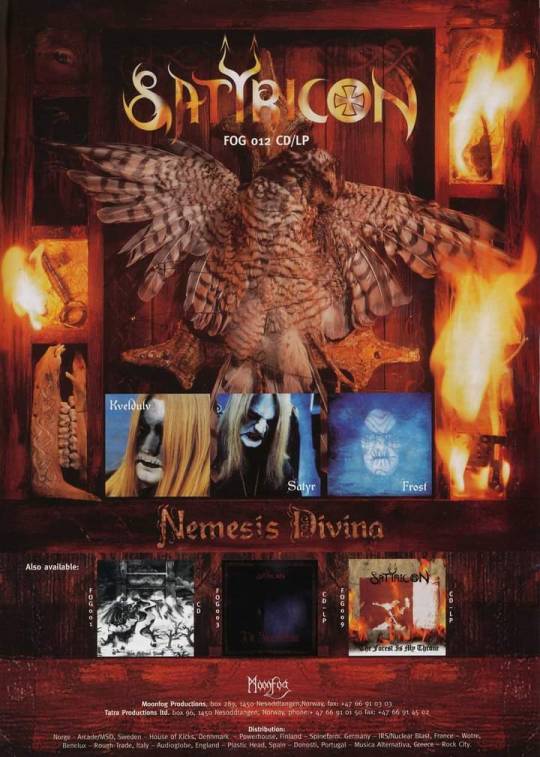
Satyricon "Nemesis Divina"
0 notes
Text
Solfeo cósmico del universo
Cuantuns solo
Apreciable en sinfonía.
La música del universo es.
Gravedad cuántica. Gravedad es peso, cuantuns, es particula.
Una particula, es particular, una que se diferencia del resto, particulas, es general, de campo, y, esto, se estudia como fenómeno ( físico), se estudia un efecto o acción. En la particula, pensamos en uno, en su particular, cualidad e individual, dejando fuera a lo general y su relación con el mundo.
La gravedad. Es el peso.
Gravedad físico. Es ese peso tiene nada de acción, soluto, en estado sólido.
La gravedad cuántica es la gravedad del estado gaseoso, como el universo. Una particula, más haya de átomo, no es ni forma soluto o sólido, y se comporta como gas.
Acciona como gas.
Los cuantuns, o, particula, de definen según su vibración. El tamaño de movimiento o implosión, la implosión es como se mueve, es según, su longitud de onda, está está definida por los cuerpos que atraviesa o rebota a su paso.
No importa cuántos rebotes o pasos tengo, el último define, o, la sumatoria aletoria, definen su velocidad de movimiento o frecuencia.
El movimiento de onda, es un movimiento de implosión o a causa de esta.
La implosión es un generador de materia y organizado de esta.
Cómo la formación de estrellas
Así, es como una longitud de onda, o, vibración, o, cuerdas, forma materia de la nada homogénea, mediante la implosión.
Cuando la nada es un todo, es algo, no la falta de, no es negativo.
Cuando todo, es lo único, nada es,
Nada es particular o no existen.
Para la existencia de fenómeno o acción y hecho debe haber un génesis y lo que resulta de este, en balance, el/ un nemesis.
Así, se conoce a la parte o gin jan
Todo y nada.
Los polos ambos generantes de medio existentes, o, de, existencia
La implosión genera la parte, y las partes particulares y diferentes general, el algo, la existencia, o, el alma
Peso, es la influencia de algo sobre su entorno.
Así, una vibración debe estar subordinados a un conjunto común, un movimiento entero común, una tonalidad musical.
De armonía o frecuencias relacionadas.
O, el octavaje. Misma frecuencia a diferentes velocidad, mismo expansión o implosión.
Nemesis. Es la fuerza estabilizadora del sistema. Ya que si todo fuera génesis no habría fluidez de sistema. Está fluidez o movimiento, es la asimetría que da o parte a la existencia. Así, dos polos y un medio existente. Existencial.
Uno no nace con destino. No razón divina.
El destino se crea.
Y si Dios interviene en mi, fuera de los designos del nacimiento. Nacimiento designado, lugar y ámbito, crea y no se nace, con destino. Así, un nuevo génesis.
En ambiente controlado de ensayo, el nemesis es la temperatura presión y contenedor.
El contenido es génesis.
El génesis da al nemesis, este altera el destino y da un neogénesis.
El génesis da al nemesis y el nemesis da al génesis.
Cómo cada nacimiento lleva a un parto.
En esta historia, el hombre génesis y Dios e nemesis.
Deseo, génesis. Voluntad nemesis.
Ciudadano, Génesis. Democracia, nemesis.
1 note
·
View note
Text
hotd conseguiu não engajar em hipersexualização e ainda assim ser menos moralista q got.
got era mais conservador pq as personagens femininas q tentavam o mínimo de liberdade sexual sofriam uma punição moral por isso, fosse por fofoca e perda de credibilidade ou poder político, por castigo religioso ou uma punição divina, um evento externo não relacionado, quase uma Nemesis do sexo. O cúmulo de tudo era essa punição do destino recaindo sobre personagens por serem bonitas e desejadas. A hubris de cativar desejo nos homens
0 notes
Photo

It’s a slight inception here.
( Strixes’ Sabre )
#frost#kvlt#black metal#satyricon#Kjetil-Vidar Haraldstad#dark medieval times#kutte#battle jacket#badge#buttons#pins#now diabolical#the age of nero#Nemesis Divina#the shadowthrone
2 notes
·
View notes
Text
O principal objetivo dos filhos de Nêmesis será sempre a vontade de fazer a justiça ser cumprida
Poderes Naturais
Personalidade comum de um filho de Nemesis
Imparcialidade, lealdade, fidelidade, sinceridade, honestidade, senso crítico e senso de justiça são os valores que todos os filhos de Nêmesis preservam. Agem conforme a justiça. São extremamente vingativos com pessoas que não exercem a igualdade entre todos.
Aparência comum de um filho de Nemesis:
Possuem geralmente cabelos escuros que costumam crescer em “ondas” pela cabeça. A pele muito clara. Possuem feições bonitas e simpáticas, mesmo que em alguns momentos transpareçam tamanha seriedade. Entretanto, muito dificilmente curvam seus lábios em sorrisos, mantendo sempre a expressão de um juíz, ou seja, imparciais.
Poderes Naturais
Perícia com Espadas e Adagas: Um filho de Nemesis sempre terá mais facilidades em se mover e utilizar espadas e adagas.
Alvo marcado: Um filho de Nêmesis nunca se esquece daqueles a quem jura retribuição de modo justo. Nenhum poder pode apagar esta informação de suas mentes permanentemente. Isso se aplica somente a um único alvo que tenha relevância ao semideus, de forma que mesmo uma amnésia divina ainda o faria se lembrar da pessoa. O motivo da jura pode ser esquecido, contudo, mas o semideus ainda terá o rosto/nome da pessoa na mente, mesmo sem saber o porquê.
Estratégia rápida: Um filho de Nêmesis é capaz de bolar estratégias rapidamente, mesmo com poucos recursos. Isso faz com que, mesmo pegos de surpresa, consigam reagir com rapidez.
Aura da Retribuição: Esse semideus possui uma aura que deixa as pessoas hesitantes em fazê-lo algum mal. Isso faz com que em um embate nessas condições, o filho de Nêmesis será o primeiro a realizar o ataque
Perseguição implacável: Ao iniciar uma caçada em busca de retribuição, o filho de Nêmesis sempre saberá a direção de seu alvo, mesmo sem distinguir sua localização exata. Para isso, ele deve ter visto o alvo antes, mesmo que apenas por foto, e saber informações a respeito dele.
Aura de Neutralidade: Nêmesis costumava punir pessoas por serem muito esnobes, orgulhosas ou até mesmo excessivamente felizes. Por conta disso, seus filhos possuem uma aura de neutralidade
Inesperado: A vingança chega sem que ninguém a perceba. Por isso, filhos de Nêmesis conseguem se locomover em completo silêncio
Rastreador: Eles identificam sinais básicos de que alguém passou pelo local - pegadas, galhos quebrados e rastros gerais, desde que recentes, mesmo que não identifiquem quem os provocou.
Máculas: O filho de Nêmesis consegue ver a aura das pessoas, vendo as marcas de tudo o que elas consideram como um pecado. Ele não sabe o que cometeram, apenas enxerga as manchas. Então, o assassino em série e a filha de Afrodite que burlou seu regime acabam sendo vistos da mesma maneira
Visão no escuro: Nêmesis é filha de Nix, e passa muito tempo no tártaro. Além disso, também é necessário ter bons olhos para perseguir seus alvos. Seus filhos adquirem a capacidade de ver no escuro com a acuidade e alcance normal de sua visão comum.
Impassível: Ao decidir por algo, nenhum fator externo consegue demover o filho de Nêmesis de seu objetivo, a menos que porventura ele mesmo resolva abandoná-lo.
A Vingança é Bela: Nêmesis era considerada uma deusa muito bonita – tão bonita que Afrodite chegou a ficar com inveja. Seus filhos tem um brilho, algo que prende a atenção, por mais que muitas vezes ninguém entenda o porquê.
Sexto Sentido: Filhos de Nêmesis possuem um sexto sentido que dizem onde há perigo ou ameaça. Não prevê exatamente de onde ou quem fará o ataque, apenas sinaliza que algo potencialmente perigoso se encontra próximo.
Discernir mentiras: Filhos de Nêmesis sempre sabem quando alguém está mentindo a eles - é como uma intuição, a sensação de que algo está errado.
Mente fechada: Exatamente por suas qualidades já listadas, entrar na mente de um filho de Nêmesis é mais difícil. Poderes de leitura mental não os afetam
Retribuição celeste: Nêmesis era representada com asas. Seus filhos adquirem a capacidade de criar tais apêndices que os fazem voar livremente
Metamorfose: Consegue se transformar em qualquer animal, pessoa ou criatura
Invocação: Consegue quando necessário invocar qualquer animal próximos ou mesmo monstros mitológicos
Apocalipse individual: Faz com que o inimigo relembre todo o mal que fez, ou que já causou, fazendo assim este sentir na própria pele tudo o que fizera, chegando as vezes a deixa-lo louco, ou até se matando.
Teletransporte: Consegue se transportar com pouca dificuldade a partir de sombras
Criação e manipulação do fogo: Consegue manipular as chamas ou mesmo cria-las a sua vontade
1 note
·
View note
Text

vibes for today
3 notes
·
View notes
Text


25th Anniversary
Satyricon
Nemesis Divina
Black metal
Norway
April 22th 1996
57 notes
·
View notes
Text
Is "re_birthday" a metaphor for Allen's imprisonment and death? References from "cloture of yellow"
So...today, I was reading "cloture of yellow" once again in order to tackle an ask I received two or three weeks ago (of which I won't spoil the contents of, for now eheheh) and...now I want to show something interesting in the meanwhile.
As you all probably know, after Allen disguises himself as Riliane by exchanging clothes with her, he gets captured by the revolutionary army that has taken over Riliane's castle and then put into prison, waiting for his execution.
What is so special about those scenes?
Well, the particular choice of words that are used reference a particular song that has always been notoriously difficult to interpret within the fandom: “re_birthday”.
That’s the reason why I’ve been thinking: what if “re_birthday” was originally supposed to be a song about Allen’s imprisonment and death?
Let’s look into this, shall we?
For this post, read the links to the novel scenes I've put, otherwise that will be hard to understand this post.
Plus, once you've finished reading if you have questions, please ask me about them.
Let's first recall the first lines of the song…
When I woke, I was alone
In a room smeared black
Not able to see, not able to hear
I tremble alone in the dark ("re_birthday" song).
Now, compare all of this to the following excerpt from the novel about Allen’s time in the dungeon while masquerading as Riliane.
When I awoke, I was alone.
[...]
This jail so dark that it was like it was smeared black.
[...]
I couldn’t see anything.
I couldn’t hear anything.
[...]
I was trembling. Alone in the darkness. ("cloture of yellow", chapter 4, scene 1).
Very similar, isn't it?
Those continuous references can lead us to think that “re_birthday” takes place when Allen is imprisoned, right before his execution.
Let's go on, though...
In the ceiling there’s a big hole
Looking closely, there’s a huge spring in there
From beyond that, there suddenly resounds
A ghastly, mysterious voice
"Sinful boy
From this point on you will never
Be brought from this room", it said… ("re_birthday" song).
Unlike the other lines I mentioned, those are not actually quoted in the novel. Nevertheless...the concept thereof is still present.
Let’s first have a look at the symbolism used in the song first, though: that may help us understand the conveyed concept.
Let's start from here:
“In the ceiling, there’s a big hole
Looking closely, there’s a huge spring in there” ("re_birthday" song).
If I were you, I wouldn’t take those concepts literally: there is no actual spring on the ceiling of the prison cell where Allen stays. There is no mention of this in “cloture of yellow”.
I would rather pay attention to the symbolic meaning of the “huge spring”.
For those who have followed the “evillious chronicles” for enough time, you may know that the imageries of “gears” and “springs” are often used to convey the abstract concept of “fate” and “destiny”.
Going on with the song’s lines:
From beyond that, there suddenly resounds
A ghastly, mysterious voice
"Sinful boy
From this point on you will never
Be brought from this room", it said. ("re_birthday" song).
As you can see, the spring (“fate”) is connected to a “ghastly, mysterious voice” that casts punishment on Allen, condemning him to “never be brought from this room”.
What does this mean? Well, it seems that the “spring” (symbolizing fate) is connected to “the voice” (symbolizing “judgment” and “punishment”).
Matching the two symbols together, we obtain the concept of “karma”, which is a cherished concept for akuno. I have talked about it in the last post briefly when talking about the “Lachesis naturalis” and the “Nemesis divina”: fate (natural circumstances, the chain of cause-effect of events) in the series is directed by the logic according to which “punishment” must succeed a “crime”.
Moreover, the “ghastly mysterious voice” is most likely supposed to be Eve Moonlit, which, in akuno’s original plans, was supposed to have the role that now Irina has as Gallerian’s “daughter” and the “master of the court”; you can see how the role of the character (judgment) can match the idea of “karma” (punishment) of akuno’s worldview.
What I think those lines are trying to convey is that chain of cause-effect of the events is directed in such a way to produce the “retribution” of Allen’s crimes for Riliane’s sake: his imprisonment and death.
That said, I would go on with quoting the song:
In that moment I recalled all of my memories
The many sins piled upon myself
Along with the reason I’m here, in the end I realized
That I can’t return to back then anymore ("re_birthday" song).
With those lines, we can have a perspective of Allen’s attitude towards the realization of his own fate: he understands that the “many sins he piled upon himself” produced the outcome of his punishment in the novel…but, not only that.
Allen’s imprisonment and death are not just the product of “karma” in the series, but a product of Allen’s own wishes and purpose.
As you read the "cloture of yellow" novel, you can easily see how Allen puts Riliane's wishes before anything else.
In his mind, Allen puts his twin sister’s protection and happiness on a pedestal, letting his moral compass go astray.
For that reason, the boy gets to “pile many sins upon himself”.
As the many sins pile up, the devotion for Riliane gets stronger, while, on the other hand, the moral repulsion towards committing immoral for her sake acts diminishes. That is what Leonhart means by “contract with a demon” when he describes Allen’s idolatry towards his twin sister in the novel.
Well, can’t do anything ‘bout it now…but…there’s a meaning to this…it’s like making a contract with a demon….It’ll make you stronger…and…it’ll drive you mad.” (cloture of yellow, chapter 1, section 2, scene 7).
As the novel goes on, you can see how Allen keeps his proposition to protect Riliane until the last one of the implications of it, as he gets to take her place in the execution.
I personally find the conversation happening between Gast and the boy during the revolution remarkable: as the first attempts to flee the palace, taking note of the revolutionary army overwhelming the opposition, Allen pays the mercenary the entirety of his savings in order to persuade him into keeping protecting Riliane.
Gast is obviously surprised at such enormous devotion in the defense of a princess who is hated by everyone around her and even according to the mercenary himself “she is about to receive her just desserts."
That’s when Allen talks for the first time about taking Riliane’s consequences of her actions on himself.
Surprisingly, after saying that, the boy also reflects on whether or not that also is part of the “contract with a demon” Leonhart speaks about before his death.
Why does Allen reflect on that, though?
Because that’s the arriving point of Allen’s devotion for Riliane: as the boy engages in his actions to “protect” his sister, granting her wishes while enabling her in her own deeds and her evil regime, he becomes even more convinced and determined about his goals.
After all, why should he give up now, after the lives sacrificed for the cause and after sinking his kingdom into despair by enabling her sister’s actions? As Allen puts it (referencing Leonhart) in more instances in the novel: he could no longer sheathe his sword once he had drawn it. In order not to make everything that he has done up to that point vain, Allen would persevere in his measures to defend Riliane until the very end.
And for that reason, now he’s in that prison, after having persevered in his quest until the end. Allen knows he can’t go back to the life he has led before; otherwise, all the lives stolen and all the sacrifices would be for nothing. If Allen decided not to take Riliane’s place at the guillotine, the revolutionary army would go find her instead, making everything he has done up to that point vain, as I’ve told.
As proof of Allen’s determination and wishes to protect Riliane until the end, Allen refuses Germaine’s proposal to get out of prison; in his mind, the boy thinks thus:
It’s hopeless, Germaine. That’s impossible now.
In your mind, maybe we’re all the same people that we were before.
But the truth is…
Everything has changed. (cloture of yellow, chapter 4, scene 5) ...
…which is connected to the “re_birthday” lines:
In that moment I recalled all of my memories
The many sins piled upon myself
Along with the reason I’m here, in the end I realized
That I can’t return to back then anymore ("re_birthday" song).
“Everything has changed”; Allen realizes that for the “sins he has piled upon himself” and “for the sake of protecting the princess” he can’t return to the life he has had until now anymore.
But there is more…Allen not only refuses Germaine’s pleas to start a new life, but he also provokes Germaine and Kyle into anger by confessing and claiming (in truth or not, depending on the case) the murders of Leonhart and Michaela. In this way, Allen thinks, Germaine and Kyle will get on board with his plan and will desire is execution, as well.
And here is the connection to the next part of the “re_birthday” song.
“When I came to, both my arms were clad in red manacles
That is surely the color of someone’s spilled blood
As for both my ankles, they have blue-colored chains
That is surely the color of someone’s tears ("re_birthday" song).”
Now, this part is interesting.
Until now, I’ve talked about the way Allen’s imprisonment and death are the results of “karma” (the inner works of the third period) and Allen’s own choices and wishes.
But that’s not the end of it. Allen’s fate (particularly his death) is connected to two more variables.
Let’s first have a look at the symbolism in re_birthday, though: “chains” and “manacles” are both objects that bind a person to something.
What is that “something” in this context? Fate, as that is the subject of the song.
What are those “blue chains” and “red manacles” supposed to symbolize? Kyle and Germaine.
Let me explain why.
First of all, there are clear references to the colors Kyle and Germaine are associated with: blue and red. That is not a coincidence.
Let’s go past that, though, and let’s read the same scene where Allen has his confrontations with Germaine and Kyle.
In there, in fact, Germaine and Kyle find out about the “princess”’ true identity, as you can see…but, why do they eventually decide to have him executed as Allen? In which way do they seal his fate?
As for Kyle, we don’t really get the actual confrontation he has with Allen, aside from an indirect summary of that given by Allen himself when he confronts Germaine.
As you keep on reading the scene, apparently, upon finding out about Allen’s identity, Kyle decides to have him executed in order to avoid scandal over the fact the true princess has escaped, among the general public.
But I don’t think that’s the real reason for Kyle’s decision. That’s most likely what he would say as an official, as a king, but there is another (real) personal reason.
Allen, in fact, tells Kyle something that gets him to his core: he says to him that he has killed Michaela.
Why? Well, consider the fact that Kyle takes part in the revolution for the purpose of avenging Michaela. If you read this other scene, in fact, Kyle presents himself for the first time to the revolutionary group clutching Michaela’s shell pendant stained with her blood.
Upon hearing that, Kyle completely loses all control, violating his country’s own policies of non-violence against prisoners by giving Allen a big slap to the face.
I really think it’s actually Allen’s false confession of having killed Michaela the thing that has driven Kyle to decide on his execution.
Obviously, that is a symbol of Kyle’s desire of avenging his loved one’s death.
That said, it wouldn’t be out of place for Kyle to want to execute Allen because of his false confession of being Michaela’s murderer.
On his part, Allen delivers a false confession in order to reach his purpose of protecting Riliane, as I’ve told you previously.
So, in a nutshell: Kyle decides to have Allen executed (thus contributing to sealing his fate) because of Allen’s false confession about Michaela, because of Kyle’s “tears” over Michaela’s death, and his desire for revenge that have led him to partake in the revolution against Riliane in the first place. That’s how Kyle also contributes to sealing Allen to his fate, acting as “blue chains symbolizing someone’s tears”, as “re_birthday” goes.
Now, what about Germaine?
Here the reasoning is similar to what I have told you about Kyle: why does Germaine decide to have Allen executed, despite knowing he’s not the real princess?
You can see there how Germaine wants to convince Allen to get out of prison at all costs and start a new life together.
Because Allen confessed how he has killed Leonhart to her.
For this case, the novel actually gives the dialogue of the interaction that occurs between Allen and Germaine.
Allen, as a response, confesses his murder of Leonhart while mocking and accusing Germaine of the fact she has organized the revolution and has used many people for the sake of carrying out her own personal revenge plot.
In a way, Allen is right about it.
Germaine has been discontent with Riliane’s selfishness for a long while and she would admire her adoptive father for sticking to helping the populace the princess clearly has never cared about. Despite all of this, Germaine has started taking action against her and plotting the revolution only after Leonhart’s death (read here).
This explains why Germaine decides to have Allen executed: her deal about the revolution has always been revenge for Leonhart’s death, and with the boy’s death, that desire can be satisfied.
This is how Germaine also seals Allen’s fate, acting like “red manacles symbolizing someone’s blood”.
In short, so far, the song conveys all the factors contributing to Allen’s fate of imprisonment and execution: Allen’s determination and wishes to protect Riliane, Germaine’s plot to avenge Leonhart, Kyle’s desire to avenge Michaela, and, at a “higher level”, the third period’s workings of “karma” for Allen’s crimes.
Now, let’s go on with the re_birthday song.
“Lu li la lu li la”, the song I came to hear
I wonder who is singing this lullaby…?
How much time has passed?
I asked of the unmoving spring
Only the singing voice
That I’m hearing out of nowhere heals me (“re_birthday” song).
This is a part of the song that is referenced in the chapter about Allen’s imprisonment and death in “cloture of yellow”, as well.
How much time had passed?
[...]
Occasionally, I could hear a faint voice singing through those boards. A yet childish voice. No, perhaps that was just my imagination. It was so faint I couldn’t tell. I thought that maybe some child was singing to themselves while playing around the palace somewhere.
[...]
Before I knew it, I was singing too. I sang a lullaby that my mother had often sung to me, when I was very little.
The song was good. It let me forget my anxieties. I would keep singing like this forever. (cloture of yellow, chapter 4, scene 3).
Now, the song gets interesting because it mentions the clockwork lullaby (after all, “re_birthday” is part of the “clockwork lullaby” series).
Surprisingly, there is no actual mention of the “lu li la” pattern in the excerpt I have just quoted (there will be one in another scene, though. I will talk about that moment soon).
Anyway, I find those quotes from “re_birthday” and the novel interesting because they mention the first clockwork lullaby, specifically the part of the lullaby supposedly being able to “heal” one’s heart.
“Lu li la lu li la, can this lullaby
Heal your heart, I wonder?” (“clockwork lullaby 1” song).
But, that’s not only that.
Those quotes are not only interesting because of that reference. In order to understand more, I’m going to quote more of the “re_birthday” song.
One day I realized
The true meaning of that song
And I added on new words
To the lullaby (“re_birthday” song).
Now, about this particular sentence: “add new words to the lullaby”...that is a general expression attached to more than one particular context in the series. I plan to talk about its meaning on a separate post.
With this, the song enters in the deep of the “clockwork lullaby lore”.
I have previously made a post about the general information about the clockwork lullaby. There I have stated that the “clockwork lullaby” is a song that describes fate and the passage of time.
For that reason, I’m not going to go in detail about the general meaning of that sentence within the series, but, I’m still going to tell what those particular quotes are referencing in the context of Allen’s imprisonment and death.
The “cloture of yellow” novel references Elluka’s “prophecy” about the fall of Riliane’s reign. You can read it in this scene.
Without going into detail about the entire content of the “prophecy”, in its final part Elluka predicts Riliane’s execution at the guillotine.
Despite that, Elluka also mentions how there could be a possibility of an “irregularity” of the prophecy; in short, fate can be changed, even partially.
“I have nothing left to say, Allen. Take care of your big sister. If you can change her fate, then do so. If it’s possible to cause an 'irregularity’ in the prophecy…perhaps you’ll be able to manage it?” (cloture of yellow, chapter 2, section 2, scene 1).
Well, Allen, as the “irregular” he is in the series actually manages to change fate a little bit, having himself be executed instead of Riliane (and he mentions that, in this scene where he dies).
In changing fate, Allen has added “new words to the lullaby”.
Here’s a catch, though: the song states about Allen having learned about the meaning of the lullaby, while throughout “cloture of yellow”, Allen never gets to understand it: Allen changes fate without really understanding the workings of the lullaby.
Maybe that’s a point akuno ended up not developing at the time of the release of “cloture of yellow”; maybe he planned to develop that part of the song, sometime after that novel.
That being said…I will now go on with the song, once again.
“From a gap in the spring
A small light fell down
This is, surely
–A message you sent me–” (“re_birthday” song).
This part is both fascinating and problematic at the same time because it conveys its link to “regret message”. Akuno himself stated the presence of such links between those two songs in the past: when akuno first released “re_birthday”, he also gave more context about it on a blog page. Here’s a little excerpt:
“The title is "birthday" meaning birthday.
“Rebirth" means resurrection or revival
and "re" in the sense of an answer song to "[Re] regret message".
I combined these elements in the song.” (translated with deep-l translator).
How do the two songs link to one another, though? What is the meaning behind the lines in “re_birthday” I have mentioned?
Here comes the problematic side of the lines.
It’s difficult to point at some scene in “cloture of yellow” in which Allen actually “responds” to Riliane talking in “regret message” by the sea, mainly for the reason that the boy is not there with her, nor he knows about her message in the bottle addressed to him.
Despite that, in “cloture of yellow”, there is a link between the content of “re_birthday” and “regret message”.
In order to understand what is that about, I would have a nice look at the latter song, in particular: what Allen is supposed to reply to in “re_birthday” that is found in “regret message”?
I think Allen is supposed to give the answer to the last line in the song, which I believe is the actual content of the letter that Riliane puts into the glass bottle to be drafted away by the sea:
“If only we could be reborn…”
Obviously, Riliane wishes to meet Allen again…but, how does the latter “respond” to this in re_birthday?
With the last few lines of the song:
"the spring that began to turn recites quietly
“Your sins will never be forgiven”
But a word called water, a word called evil
We shall change those into a song
The red manacles fall off and address me
“After this you will be reborn”
The blue shackles fall off and talk to me
“Today is your new birthday”
Everything spins and dyes white
I’ll go to see you very soon." (“re_birthday” song).
This part can also be difficult to explain easily since it involves some “clockwork lullaby” lore; in particular sentences similar to “but a word called water, a word called evil, we shall change those into a song” are found in a bunch of other places in the series. That kind of catchphrase deserves a post of its own too.
To put it in a nutshell, I interpret the spring that recites “your sins will never be forgiven” as fate hindering Allen from meeting Riliane, from reincarnating to meet her (maybe as part of the karma? Aside from his imprisonment and death, I mean)-
Despite that, Allen will manage to overcome fate’s hindrance caused by his sin (“evil”) and the physical distance between him and Riliane (“water”, which can symbolize the medium Riliane uses to convey her messages to him in “regret message”).
So…Allen once again manages to defy the fate that would keep him from meeting Riliane, and, consequently, the object that used to bind the boy to his fate also vanish (the “manacles” and the “shackles”).
After that, the boy is free to reincarnate, promising Riliane to “go to see her soon”.
That would be Allen's response to Riliane’s wish to meet again in “regret message”
.
“If only we could be reborn.” -Riliane
“I will go to see you soon.” -Allen
But…how about the novel “cloture of yellow”? How does it convey the same lines of “re_birthday”?
Well, here’s the catch: it doesn’t really. Allen doesn’t know of Riliane whereabouts until after his death and he can’t know about the messages his sister writes to her, while in prison and later on the scaffold.
Nevertheless, there seems to be a contact between the novel and “regret message” (albeit not in the same exact way as it’s connected to the “re_birthday” song, hence, as a response to “regret message”).
Let’s have a look at this, in the scene where Allen dies.
Upon sitting on the scaffold on the day of his execution, Allen goes into panic, being afraid of death. After that he hears the “lu li la” pattern, about which the boy thinks he’s just a hallucination (I really doubt that and I have my actual views about what really happens there, but that’s what he believes). After that, Allen experiences a vision of a memory in which he and Riliane are children. In that experience, Riliane states her wish to be reborn (albeit as a horse that time, but still…kid games). After re-living that memory Allen also wishes to be reborn to meet Riliane one again; in fact, his last thoughts before passing away are:
Farewell, Riliane
,
if only we could be reborn
let’s play again then, okay? (“cloture of yellow”, chapter 4, scene 7).
Does that remind you of something? He expresses the same thing as Riliane in “regret message”, not as a proposition, like in “I’ll go see you soon”, but as an alignment of their wishes. They both want to see each other, again.
Moreover, I theorize that the “gap in the spring from which Riliane’s message pops out” in the “re_birthday” song can be the illusion Allen experiences before his death.
The “spring” is a metaphor of “fate” and the passage of time;
the illusion is triggered by the “lu li la” pattern, which means it can be the product of one of the “clockwork lullaby” spells;
those spells are able to access the very fabric of space and time in the series, making a character able to know the unknown, or “play” past memories (like it happens in the evillious “akashic recorders”, that are based on the “clockwork lullaby”);
that said, the “gap in the spring” would be the alteration of time that lets Allen relive those memories and convey Riliane’s wish to be reborn (albeit in a distorted way).
That is just my speculation, though.
In conclusion, there seems to be a 1:1 correspondence between the novel and “re_birthday” only in the first part of the song; the other parts are only alluded to in the novel, probably meaning that they would have been expanded on after “cloture of yellow”.
“Re_birthday” is indeed a song which meaning has been changed as time passed because of changes of mind from akuno. Currently “re_birthday” has a totally different meaning, based on the plot around the “master of heavenly yard" novel.
I know this post can be really confusing, if you have questions, please ask me about them, as I've told at the start of this.
#evillious chronicles#evillious#allen avadonia#germaine avandonia#germaine#riliane#germaine avadonia#leonhart avadonia#kyle marlon
20 notes
·
View notes
Photo
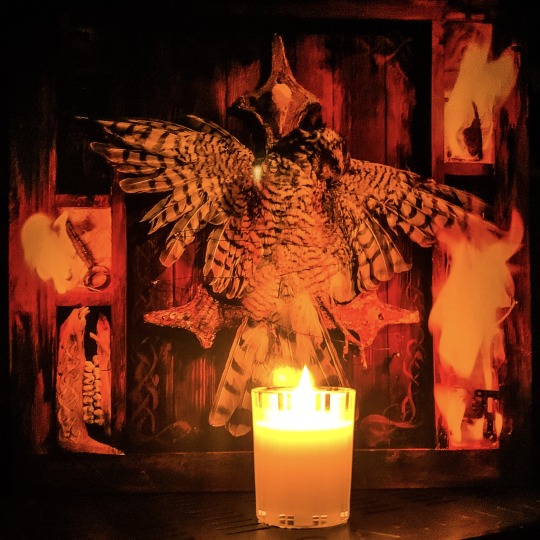
I need a sabbatical.
5 notes
·
View notes
Text

This Day in Metal
Apr 23rd 1987 @deathangel released their debut album "The Ultra-Violence" #FinalDeath #KillAsOne #EvilPriest #Thrashers #ThrashMetal
Did you know...
Drummer Andy Galeon just 14 years old when the album was recorded. https://t.co/X7cYV3v8Mb
3 notes
·
View notes